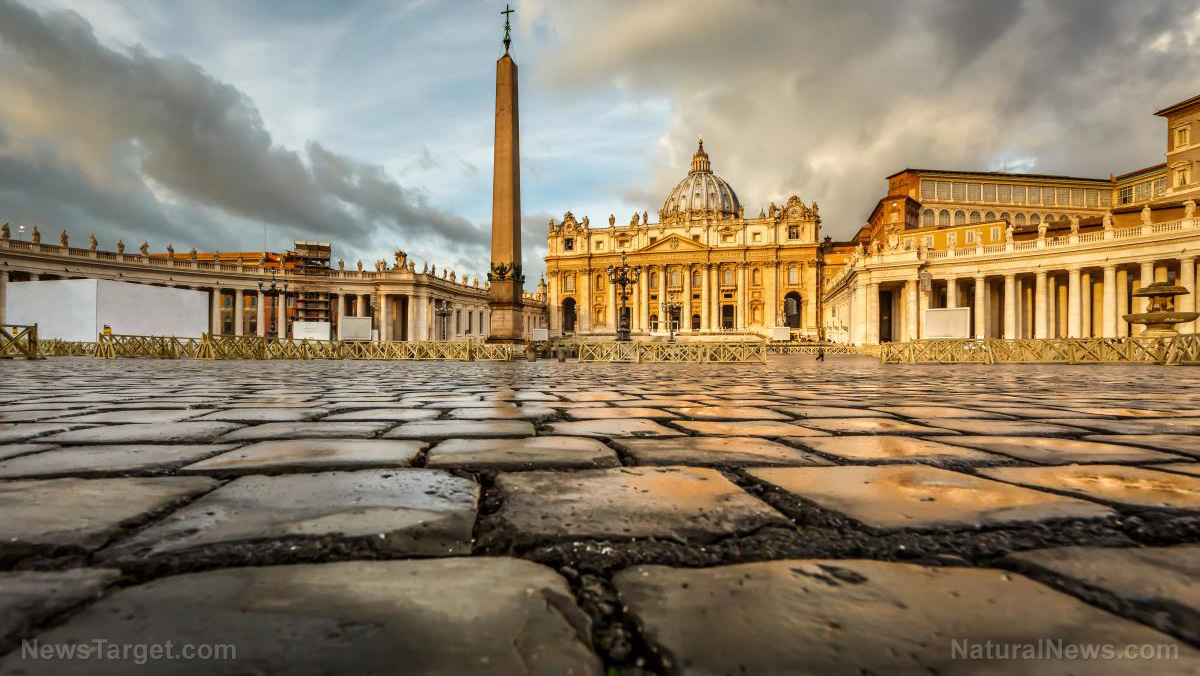Big Tech’s culture war: Google buries Catholic voices opposing Pope Francis’ reforms under vague “hate speech” claims
- Google abruptly removed Messainlatino.it, a major Italian Catholic blog hosting 22,000 posts since 2007, citing unspecified hate-speech violations.
- The blog’s focus on pre-Vatican II liturgy and conservative theology prompted over one million June 2025 visits amid anticipation of liturgical reforms under Pope Leo XIV.
- Editor Luigi Casalini called the action a “grave violation” of free speech, launching legal action under Italy’s constitutional protections.
- Critics argue the takedown risks ideological gatekeeping, weaponizing vague content policies against dissenting religious views.
- The incident highlights Silicon Valley’s growing influence over religious discourse and raises questions about digital pluralism.
When visitors to Messainlatino.it on July 12, 2025, encountered a stark “Blog has been removed” notice, what followed was not just personal outrage but a cultural reckoning. The closure by Google’s Blogger service of the widely read Catholic blog—host to 22,000 posts defending traditionalist theology and pre-Vatican II liturgical practices—has sparked fierce debates about free speech, corporate power and the fragility of religious expression in the digital age. Editor Luigi Casalini condemned the move as a “grave violation” of constitutional rights, while supporters see it as a coercive pruning of contention by tech giants. With no transparency on grounds for removal, the episode underscores the volatile intersection of religious advocacy and Silicon Valley’s evolving content policies.
The blog’s role in Vatican II retros and liturgical reform
Messainlatino.it (MiL), established in 2007, was a cornerstone for Catholics advocating the Tridentine Mass, a Latin liturgy restricted under Pope Francis’ 2021 Traditionis Custodes doctrine. Its rise to over one million June 2025 visitors reflected renewed interest in traditionalist rites under newly elected Pope Leo XIV. The site also critiqued modern theological trends, emphasizing doctrinal fidelity and starkly opposing causes like female ordination.
Luigi Casalini, a journalist and editor since 2014, framed MiL as both a liturgical chronicle and a “vigilant voice for doctrine in an age of activism.” Its archives detailed theological debates, papal decrees and updates on Rome’s political climate. A follower from France, commenting on rival platform X, wrote, “This was our spiritual GPS—gone like paperwork in a government fire.”
Google’s justification—citing its “community guidelines”—remained vague, leaving critics to question how Catholic teachings on traditional marriage or sexual ethics could constitute “hate speech.”
Legal and constitutional backlash
Casalini announced plans to sue Google, citing Italy’s Article 21 of the Constitution, which enshrines free expression and bans censorship. He stated, “If the law can’t protect a tradition older than our nation, what hope have we?” Many Italian Catholics echoed his alarm.
Stefano Fontana, an analyst at the International Observatory Cardinal Van Thuân, noted MiL’s historical significance as a “countercultural lifeline” during decades of doctrinal drift. He added, “They weren’t just archivists—they were custodians of clarity in papal statements. Now their entire record is scrubbed, as if erased from history.”
Legal experts argue the case could test whether corporate content takedowns collide with national speech protections. “If Google can delete centuries of theology under opaque policies,” Fontana warned, “any dissent not palatable to Big Tech could vanish next.”
A symbolic clash over digital ideology
The MiL controversy parallels broader tensions between tech giants and religious institutions. Since the 2010s, platforms like Google and Twitter have banned ads demeaning religious groups, yet critics now accuse them of applying rules inconsistently. MiL’s opposition to practices like online gambling and LGBTQ+ inclusion—aligned with Church teachings—may have conflicted with modern platform sensibilities.
Civility vs. conviction is central to the dispute. While Google claims its policies prohibit incitement, supporters argue MiL never crossed into overt hate speech. Casalini’s posts “argued for liturgical preservation, not persecution,” noted Rome-based legal blogger Elena Di Pietro. Yet the vague “hate speech” label allowed Google to act without transparency.
Cultural observers warn this amplifies a “litmus test effect,” where platforms prefer users who align with liberal secular values. “They’re not just moderating content—they’re sculpting culture,” said historian Marco Borghi.
A digital crossroads for religious expression
The MiL takedown challenges how faith communities can thrive online. As traditional venues dwindle, digital platforms become vital for worship, education and community. Yet reliance on these spaces cedes control to corporations prioritizing profit. “The next generation can’t have their theology forced through the sieve of a venture capital board,” argued Fr. Paolo Marziliano of the University of Bologna.
The case also reflects global divides. In the U.S., apples-to-oranges legal comparisons exist—Section 230 shields platforms from liability here—but European nations have stronger free speech norms. Italy’s Article 21 explicitly prohibits censorship, putting Google in legal crosshairs.
Testing the limits of liberty online
As Messainlatino.it vanishes from cyberspace, its disappearance symbolizes deeper struggles: the narrowing space for religious and ideological diversity in digital spaces. Google’s actions—denied most details to the public—threaten to normalize a state where companies, not constitutions, frame acceptable discourse.
The incident’s ripple effect looms. Traditionalist communities worldwide now confront existential dilemmas: digitize and risk censorship, or retreat into analog silos? For Casalini and supporters, the fight isn’t just about one blog, but defending pluralism’s right to exist in public.
As Fontana poignantly put it, “If we let algorithms edit heaven, what does that say about our earthly souls?”
Sources for this article include:
ReclaimTheNet.org
Zenit.org
CatholicCulture.org
Read full article here


